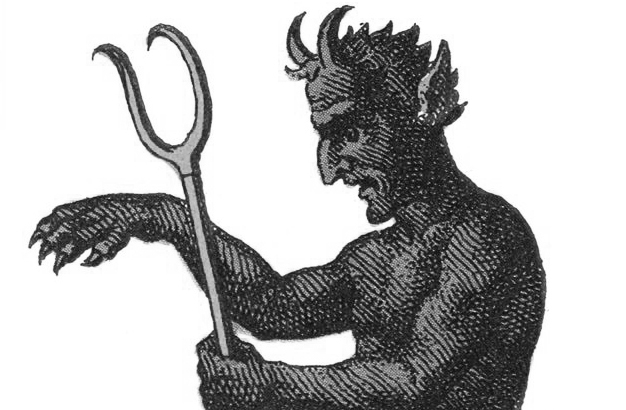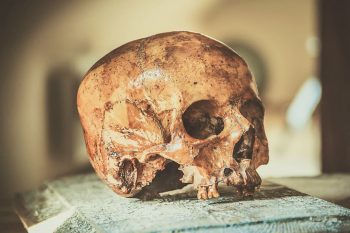What do demonologists study?
Demonology includes studying the origins, characteristics and behaviours of demons. It’s often associated with religious traditions that believe in the existence of supernatural beings, such as angels and demons, who interact with the physical world.
Demonologists study the various beliefs about demons and the ways in which they are worshipped or exorcised. This can include the study of religious texts, prayers, rituals and folklore. They may also study the historical accounts of exorcisms and demon possessions, including accounts of famous cases and the methods used to perform the exorcisms.
One of the most famous examples of demonology can be found in Christianity, where demons are considered fallen angels who rebelled against God and now seek to torment and deceive humanity. In Christianity, demons are often depicted as powerful but ultimately subordinate to God, who has the power to cast them out of the physical world.
In some religious traditions, demonologists are trained in the methods of exorcism and are responsible for performing rituals to remove demons from individuals who have been possessed.
While demonology is a part of many religious traditions, it’s also a subject of intense scrutiny and skepticism in many circles. Some people reject the idea of demons and demon possession altogether, while others believe that these beliefs are simply the result of psychological disorders or superstitions.
Concepts within demonology have been around for a long time
The concept of demons and demonology has been a part of human culture for thousands of years and can be found in many different religious and spiritual traditions across the world. In some cultures, demons are seen as purely evil entities that seek to do harm to human beings, while in others they are seen as more nuanced and complex, possessing both good and evil qualities.
In many cultures, demons are believed to be evil spirits that have the power to possess individuals and cause harm to them. They may be depicted as fallen angels, corrupted spirits, or malevolent entities that exist in another realm.
In some religious traditions, demons are believed to have specific powers or abilities that they use to torment and deceive humans. For example, in some traditions demons are believed to be able to possess individuals, causing them to behave in ways that are out of character. They may also be blamed for physical illnesses, mental disorders, and other problems that cannot be easily explained.
It’s also worth mentioning that demonology has been a source of inspiration for many works of fiction, including literature, film, and other forms of media. These works often portray demons in a dramatic and exaggerated way, emphasising their power and malevolence, and may include elements of ritual, magic, and supernatural powers.
Despite its ancient origins, demonology remains a controversial and divisive subject that continues to generate interest and debate among people of different cultures and beliefs even to this day.
20 well-known demons or demonic entities
In terms of the question “who are the 20 most well-known demons”, the answer can vary greatly depending on cultural, historical, and regional factors.
However, here is a list of some of the most widely recognised demons or demonic entities from various traditions and belief systems:
- Satan or the Devil – the ultimate evil entity in many Abrahamic religions
- Lucifer – the fallen angel in Christianity
- Beelzebub – a prince of demons in Abrahamic religions
- Astaroth – a demon associated with lust and corruption in some traditions
- Azazel – a demon associated with desert wildernesses and temptation in some Jewish and Islamic traditions
- Baphomet – a Sabbatic goat-headed deity associated with satanic and occult beliefs
- Asmodeus – a demon of lust and rage in Jewish and Islamic traditions
- Pazuzu – a demon of the winds and plagues in ancient Babylonian and Assyrian mythology
- Abaddon – a demon of destruction and the underworld in Abrahamic religions
- Lilith – a demon of lust and childbirth in Jewish mythology
- Mephistopheles – a demon in German folklore and the author Goethe’s play “Faust”
- Mara – a demon of temptation and evil in Buddhist tradition
- Baal – a powerful deity worshipped in ancient Canaan and associated with evil in some Abrahamic traditions
- Leviathan – a sea monster and symbol of evil in some Abrahamic traditions
- Samael – a demon associated with death and destruction in Jewish mythology
- Iblis – a fallen angel and tempter in Islamic tradition
- Kali – a Hindu goddess associated with destruction, death, and the dark side of life
- Anubis – an Egyptian god associated with mummification, death, and the underworld
- Medusa – a gorgon monster in Greek mythology with the power to turn people to stone
- Zagan – a demon of prosperity and knowledge in demonology.

